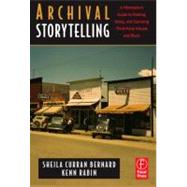
| Acknowledgments | p. ix |
| Introduction | p. 1 |
| Finding It | |
| What are archival materials? | p. 15 |
| Finding what you need | p. 25 |
| Should you hire a professional? | p. 51 |
| A global perspective: Conversations with image researchers | p. 61 |
| Using It | |
| Practical considerations | p. 85 |
| Ordering what you need | p. 97 |
| Creative considerations | p. 117 |
| An ongoing process: A conversation with Geoffrey C. Ward | p. 131 |
| Ethical considerations: A roundtable discussion | p. 141 |
| Licensing It | |
| Introduction to rights and licenses | p. 159 |
| The public domain | p. 189 |
| Getting things right: A conversation with Lawrence Lessig | p. 201 |
| Fair use | p. 211 |
| Fair dealing, moral rights, and more: A conversation with Hubert Best | p. 229 |
| Licensing visuals | p. 241 |
| Licensing music | p. 265 |
| Legal considerations: A roundtable discussion | p. 283 |
| Afterword | p. 295 |
| Additional Material | |
| Sources and notes | p. 303 |
| Books | p. 309 |
| Films | p. 311 |
| About the authors | p. 317 |
| Index | p. 319 |
| Table of Contents provided by Ingram. All Rights Reserved. |
The New copy of this book will include any supplemental materials advertised. Please check the title of the book to determine if it should include any access cards, study guides, lab manuals, CDs, etc.
The Used, Rental and eBook copies of this book are not guaranteed to include any supplemental materials. Typically, only the book itself is included. This is true even if the title states it includes any access cards, study guides, lab manuals, CDs, etc.